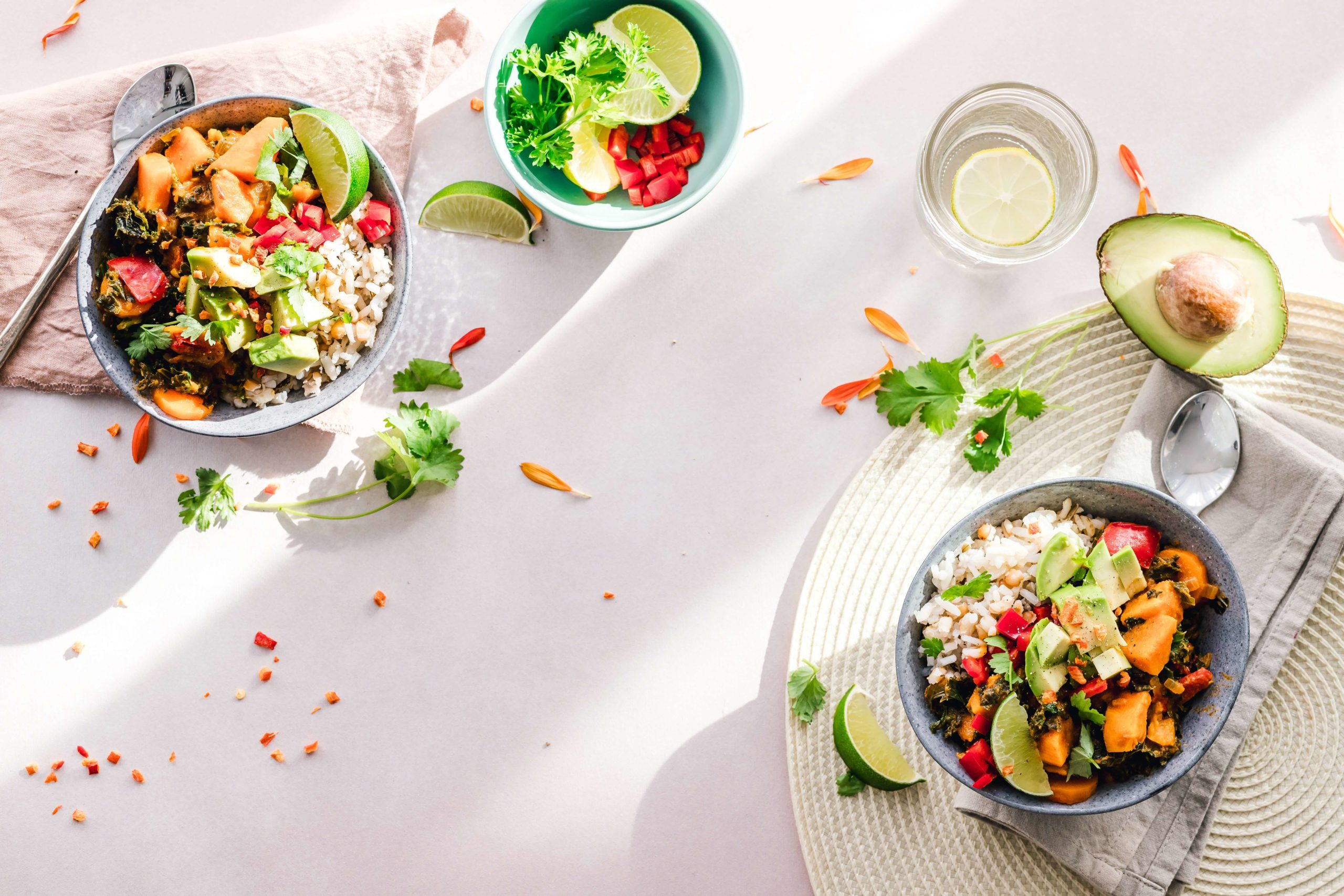Let's stay in touch
Keep in touch with us and stay up to date with latest in the world of healthcare and gut health!
You are what you eat. And when it comes to your gut health, what you eat has a big impact on keeping you and your gut in good shape. When your gut isn’t healthy, it can affect your mental health, mood, body weight, and a number of digestive disorders.
Before you have your next meal, you may want to ask yourself: am I feeding my gut bacteria? A growing field of research is finding that our gut bacteria play a crucial role in our health. Feed these microbes well and your digestive system will work at its peak capability. And with 100 trillion bacterial cells in our gut, that’s a lot of mouths to feed.
The bacteria in our gut play an important part in our health and it is prebiotics that is the food that they thrive on. Think of prebiotics as a ‘gut fertiliser’ to promote the growth of beneficial bacteria such as Bifidobacteria and Lactobacillus.
Other benefits of prebiotics include improvement in gut barrier function, immunity and even regularity of bowel movements. Prebiotics can also help reduce the amount of potentially damaging bacteria in the gut by altering the pH, making it less of a hospitable place for the more harmful bacteria.
To keep your gut ecosystem happy, you want to be eating more foods that are high in different types of fibre including soluble and insoluble fibre and resistant starch. To do this, the simplest advice is to eat a wide variety of nutritious whole foods from all food groups, which would naturally contain different types of fibre. That means more vegetables, more fibre-rich foods and including some probiotic foods while easing up on highly processed junk food, added sugar and alcohol.
Some of the key prebiotic foods include:
Eating more prebiotic foods will have you on the way to a healthy gut. And the good news is that a shift to a healthier diet can change the bacterial mix in a few short days. To illustrate, one recent study involving African Americans who swapped their meat-heavy, highly processed diet for a diet typical of African foods rich in beans and vegetables saw a positive change in gut microbes within just two weeks. And the reverse swap saw that when rural Africans switched to a typical American diet, their microbe profile was more in line with a higher risk of colon cancer.
These rapid changes in gut health with a switch to eating healthier will stay in place so long as you stick to the better food choices. So treat this like a long-term game where you make small changes and healthy food swaps over many weeks to months to make the changes sustainable. Something as simple as eating two pieces of fruit each day and choosing wholegrain foods over more refined grains is a great way to start. Then look at adding in more of the variety of prebiotic foods available to us.


SAMe is a compound best known for its antidepressant action. In this article, we seek to touch on the significant body of evidence that supports


Ingredients (4 serves):• 500g carrots, grated. (Ideally organic)• ½ red onion, finely sliced• Zest & juice of 1 lemon• 2 tsp toasted cumin seeds• 2cm




观看由创办人 Ian Brighthope教授为大家回顾了 Nutrition Care 的历史,並向大家保证将会继续坚持纯自然和更专业的理念,为世界人们提供高质量的保健品。


2018年4月26日,Nutrition Care在墨尔本举办庆典庆祝品牌创立40周年。 Nutrition Care是澳洲著名的保健品生产商,其创立于1978年,40年来一直致力于减少药品的使用。而此次40周年庆典的主题——自然更专业,也是他们长久以来希望传达给消费者的理念。26日下午1点半,Nutrition Care的40周年庆在墨尔本的Crown正式拉开序幕。 (著名主持人李维嘉,品牌创始人Ian Brighthope,澳洲名模Lauren Vickers) 此次庆典上,Nutrition


5月13日,Nutrition Care首次冠名全澳大学生华语辩论赛——NC纽新宝杯决赛于墨尔本市政厅成功举行! 本次辩论赛由澳洲著名保健品品牌NC纽新宝独家冠名,活动到场嘉宾有中国驻墨尔本总领事馆教育组杨智勇领事,本次评委阵容亦相当强大,其中就包括《奇葩说》著名辩手陈铭与胡渐彪 。 决赛双方分别是莫纳什大学中文辩论社和墨尔本大学中华辩论社,双方就【消费主义是当代灵魂的良药还是毒药】这一辩题,站在不同的角度,深度剖析。 最终,莫纳什大学代表队的表现获得了评委们的一致青睐,夺得本届全澳辩论赛中冠军。 比赛结束后,胡渐彪评委深入浅出解读【良药】【毒药】的定义,给辩手和台下观众们带来更深层次的思考。徐卓阳评委更是以赞助商NC纽新宝在台上的养胃粉为例,幽默而又直观地对话题进行了概括,通俗易懂,却又发人深思。Nutrition Care品牌创始人Ian Brighthope虽不能亲自到场,但特意录制了一段祝贺视频给参赛选手们。视频中Ian教授感谢选手们的付出,在母亲节这样特殊的日子里,他提醒远离家人的留学生们,要注意自己的身体健康,因为健康对他们而言,是在异乡追逐人生梦想最重要的急事之一。 最後,NC纽新宝为嘉宾、评委们以及每一位前来参加活动的观众准备了养胃小礼物,让大家在观 看辩论赛时感到暖心暖胃。
Keep in touch with us and stay up to date with latest in the world of healthcare and gut health!
| Cookie | Duration | Description |
|---|---|---|
| cookielawinfo-checkbox-analytics | 11 months | This cookie is set by GDPR Cookie Consent plugin. The cookie is used to store the user consent for the cookies in the category "Analytics". |
| cookielawinfo-checkbox-functional | 11 months | The cookie is set by GDPR cookie consent to record the user consent for the cookies in the category "Functional". |
| cookielawinfo-checkbox-necessary | 11 months | This cookie is set by GDPR Cookie Consent plugin. The cookies is used to store the user consent for the cookies in the category "Necessary". |
| cookielawinfo-checkbox-others | 11 months | This cookie is set by GDPR Cookie Consent plugin. The cookie is used to store the user consent for the cookies in the category "Other. |
| cookielawinfo-checkbox-performance | 11 months | This cookie is set by GDPR Cookie Consent plugin. The cookie is used to store the user consent for the cookies in the category "Performance". |
| viewed_cookie_policy | 11 months | The cookie is set by the GDPR Cookie Consent plugin and is used to store whether or not user has consented to the use of cookies. It does not store any personal data. |




Get free shipping on your first order* when you enter your details below.
*A minimum purchase of $25 is required. Always read the labeland follow the directions for use.